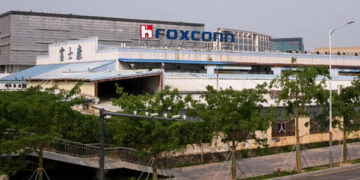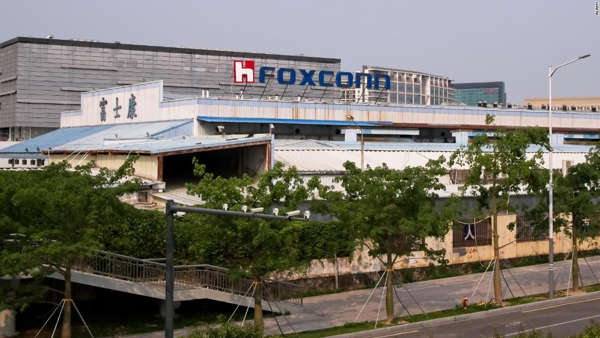By Obinna Ezenwa
Foxconn, one of Apple’s biggest suppliers, has suspended operations in Shenzhen as China locks down the technology hub and several other regions to contain the country’s worst Covid-19 outbreak in two years.
The world’s second largest economy is still doggedly pursuing its zero-Covid strategy, even as other nations reopen and try to live with the virus. The lockdowns in major Chinese cities will impact not just the country’s post-pandemic recovery, but could deliver a new blow to global supply chains.
The southern city of Shenzhen, which borders Hong Kong, is home to Chinese tech giants like Tencent (TCEHY) and Huawei. It imposed a week-long lockdown starting Monday, after recording 66 positive cases Saturday.
In its statement provided to the press on Monday, Foxconn said that the “date of factory resumption is to be advised by the local government.”
Foxconn has two major campuses in Shenzhen. The Taiwanese company has “adjusted” its production line to other sites to “minimize the potential impact” from the disruption, it added. It didn’t elaborate on which locations would take on extra work.
Shares in Taipei-based Foxconn Interconnect Technology, a subsidiary of Foxconn, plunged 9.8% in Hong Kong on Monday.
China is grappling with its worst Covid outbreak since the original outbreak in Wuhan in early 2020 as cases surge across the country. On Sunday, it reported 2,125 local Covid-19 cases across 58 cities, according to the National Health Commission (NHC).
In Shenzhen, all businesses apart from those deemed essential or engaged in supplying Hong Kong have suspended operation or have implemented work-from-home policies.
Public transportation, including subways and buses, have been suspended in the city, which has a population of 17.5 million.
Shenzhen is also home to one of the world’s largest container ports, and any disruption there could hit an already stressed out global supply chain. Last summer, the Yantian port in Shenzhen was forced to shut down for nearly a week after infections were found among dock workers, causing a massive backlog of goods that took months to clear and a spike in global freight rates. So far, the port continues to operate.



































